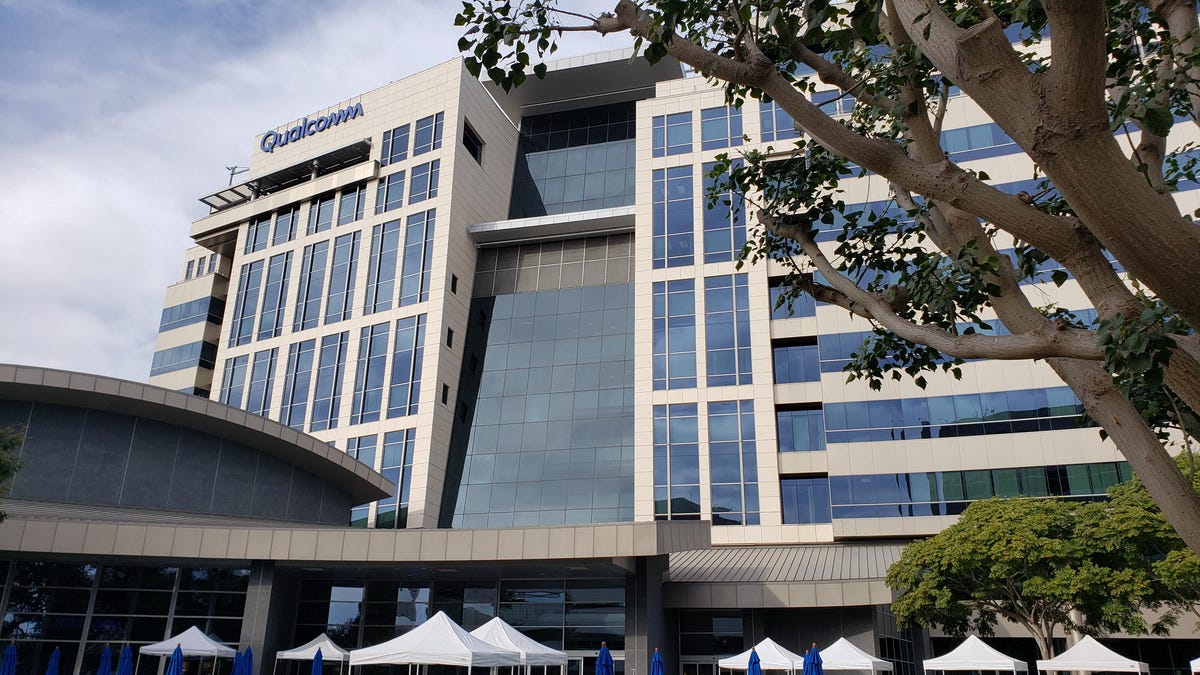Judge denies Qualcomm's bid to delay contract renegotiations
Instead, Qualcomm will have to move forward with the remedies ordered in May's ruling that found the chipmaker to be a monopoly.

Qualcomm, based in San Diego, Calif., is one of the world's biggest mobile chipmakers.
Qualcomm has to renegotiate licensing agreements with handset makers before its appeal is heard, a judge ruled Wednesday, dealing another blow to the chipmaker in the antitrust case that could upend its entire business model.
The company, which in May lost an antitrust case and was found to be a monopoly in wireless chips, had asked US District Court Judge Lucy Koh to grant a reprieve in carrying out remedies she ordered. The remedies included renegotiating licensing agreements previously reached with handset makers like LG and submitting to monitoring by the Federal Trade Commission. Qualcomm wanted the injunctions to be put on hold while the case made its way through the appeals process.
Instead, Koh, in a ruling filed Wednesday in the court's Northern District of California, said she denied Qualcomm's motion for a stay pending appeal after reviewing the motion, amicus briefs filed in opposition to Qualcomm by LG and others, arguments and evidence from the trial and other documents relevant to the case.
Qualcomm on Wednesday said it will immediately ask the Ninth Circuit Court of Appeals for a stay.
Two years ago, the FTC accused Qualcomm of operating a monopoly in wireless chips. The FTC said Qualcomm forced customers like Apple to work exclusively with it and charged "excessive" licensing fees for its technology, in part by wielding a "no license, no chips" policy. Qualcomm's practices prevented rivals from entering the market, drove up the cost of phones and in turn hurt consumers, who faced higher handset prices, the FTC said.
Qualcomm argued the FTC's lawsuit was based on "flawed legal theory" and that customers choose its chips because they're the best. It also argued that competition is fierce in the mobile chip market and that Qualcomm never stopped providing processors to customers, even when they've been arguing over licenses.
The companies faced off in an 11-day trial in January. In May, Koh ruled in the FTC's favor, saying Qualcomm was a monopoly that illegally hurt competitors in the wireless chip market. The ruling, which came four months after the trial ended, said Qualcomm must change how it does business and renegotiate license deals with its customers. To hold the company accountable, Qualcomm must also submit compliance and monitoring reports for the next seven years and report to the FTC on an annual basis.
"Qualcomm's licensing practices have strangled competition in the CDMA and premium LTE modem chip markets for years, and harmed rivals, OEMs, and end consumers in the process," Koh wrote in her ruling in May.
The ruling came as a surprise to Qualcomm and others in the mobile market. For Qualcomm, the verdict called into question the company's entire business model. While it sells processors that connect devices to mobile networks, it also generates a significant percentage of its revenue from licensing. If it can't collect royalties based on the value of a handset -- which it had done in the past -- it will generate less money and may have to rethink its model entirely. Even though it's appealing the ruling, Qualcomm's licensees likely will try to alter their contracts.
Koh, in her ruling, said Qualcomm can't force a customer to sign a license before it will supply it with chips. It "must negotiate or renegotiate license terms with customers in good faith under conditions free from the threat of lack of access to or discriminatory provision of modem chip supply or associated technical support or access to software."
Following the ruling, Qualcomm sought a stay of the district court's judgement and an expedited appeal to the Court of Appeals. Koh's decision Wednesday leaves the case in the appeals court's hands.
While Qualcomm likely won't have to renegotiate its new agreement with Apple -- the two settled their long-running licensing and patent disputes during opening arguments in a May trial -- it will have to offer other customers the chance to change their terms.
"This should not come as a surprise to Qualcomm given the hard line Judge Koh took in the first place," Creative Strategies analyst Carolina Milanesi tweeted Wednesday. "Anything else would have appeared as a weakening of her position following criticism on a lack of appreciation for the ramifications her decision will have."

